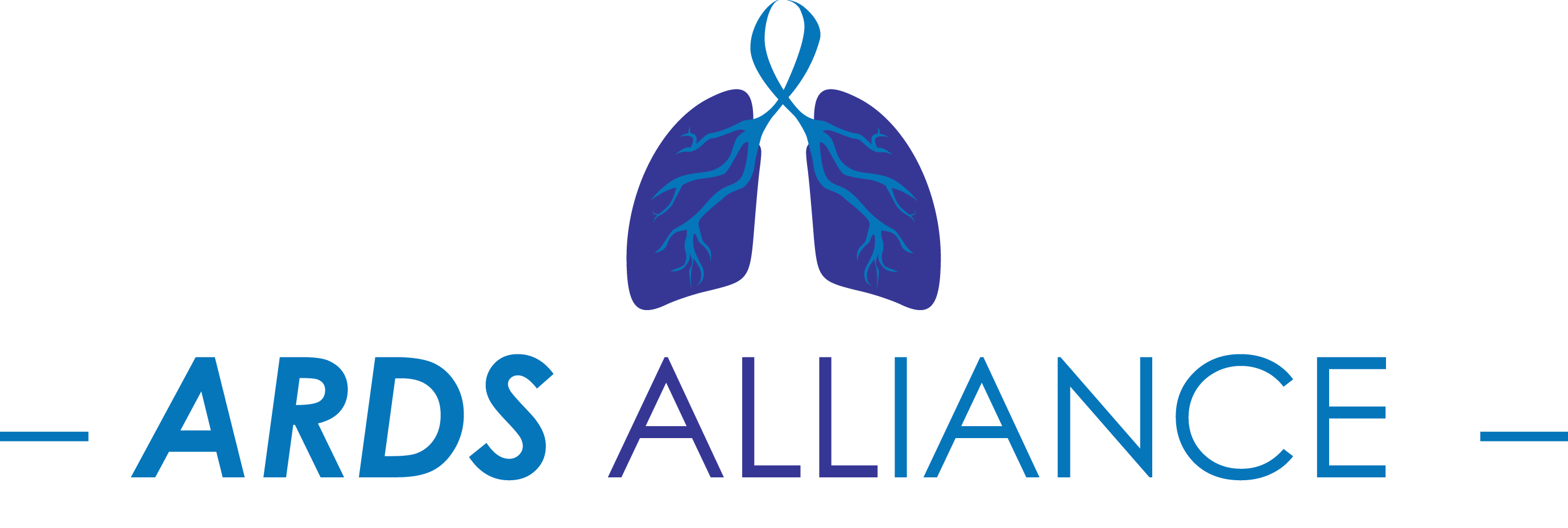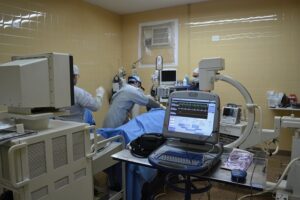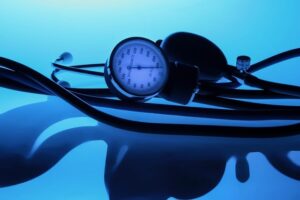Navigating Hospital Support Services for ARDS Patients
Navigating Hospital Support Services for ARDS Patients
Acute Respiratory Distress Syndrome, or ARDS, remains a critical health condition that can strike unexpectedly, leaving patients and their families grappling with severe anxiety and uncertainty. This condition involves widespread inflammation in the lungs, leading to respiratory failure and often requiring complex medical interventions. Navigating the hospital landscape while faced with ARDS can be an overwhelming experience filled with unfamiliar terminology and options. However, understanding available support services can alleviate some of this anxiety and help guide you or your loved one toward the best possible care and recovery.
The importance of comprehensive hospital support services cannot be understated for ARDS patients. These services are specifically designed to provide not only medical care but also emotional and psychological support for the patient and their family. Hospitals often have resources that go beyond traditional medicine, including physical therapy, social work, and patient advocacy programs. This article aims to provide a detailed overview of the various support services available to ARDS patients and their families, as well as practical advice for optimizing care during what can be an incredibly challenging time.
Understanding Acute Respiratory Distress Syndrome (ARDS)
Before delving into hospital support services, it is essential to understand what ARDS entails. ARDS is a severe condition typically characterized by rapid onset of respiratory failure, often resulting from trauma, infection, or pneumonia. The inflammatory process leads to increased permeability of the alveolar-capillary membrane, causing pulmonary edema and impaired gas exchange. Symptoms usually include:
- Severe shortness of breath
- Rapid breathing
- Low blood oxygen levels
- Increased heart rate
The management of ARDS often requires advanced interventions, including mechanical ventilation, oxygen therapy, and sometimes extracorporeal membrane oxygenation (ECMO). Due to its complexity, interdisciplinary care is pivotal, which leads to the necessity of various supportive services within the hospital.
Identifying Hospital Support Services
Hospitals often provide a range of support services to assist ARDS patients throughout their course of treatment. One of the first steps in this journey is asking healthcare professionals about available resources. Some critical support services include:
1. Critical Care Team
A dedicated team of healthcare providers, including intensivists, nurses, respiratory therapists, and pharmacists, is essential for managing ARDS. The critical care team will collaborate to ensure patients receive optimal care by monitoring and adjusting treatment protocols as necessary.
- Regular assessments of lung function and oxygen levels
- Multi-disciplinary rounds to discuss patient progress
- Personalized treatment plans based on the latest clinical guidelines
2. Respiratory Therapy
Respiratory therapy is a vital component of ARDS management. Respiratory therapists assist with ventilators and other respiratory devices, helping to maintain adequate oxygenation and reduce the work of breathing. They also teach patients lung exercises that may aid recovery.
- Assistance with ventilator management
- Oxygen therapy tailored to patient needs
- Techniques for effective airway clearance
3. Physical and Occupational Therapy
Recovery from ARDS often requires rehabilitation services to restore strength and mobility. Physical and occupational therapists work closely with patients to develop personalized rehabilitation programs aimed at improving overall functionality and quality of life.
- Assessing physical capabilities and functional limitations
- Designing exercise regimens that are safe for ARDS patients
- Occupational therapy to help patients regain daily living skills
4. Nutrition Services
Good nutrition is crucial for recovery from ARDS, and many hospitals offer nutritional support services. Registered dietitians can assist in evaluating dietary needs, particularly if patients are on feeding tubes or experiencing malnutrition due to illness.
- Evaluation of caloric intake and nutrition status
- Development of specialized meal plans for recovery
- Supplements to enhance immunity and expedite healing
Psychosocial Support and Counseling
The emotional and psychological toll of ARDS cannot be ignored. Many patients and their families experience anxiety, depression, and feelings of isolation. Hospitals recognize the importance of mental health support and often have resources available, such as:
5. Social Work Services
Social workers can help families navigate the complexities of hospitalization. They serve as advocates, providing support during the treatment process and helping families access community resources and financial assistance.
- Assistance with paperwork and insurance claims
- Connection to local support groups and resources
- Crisis intervention and counseling services
6. Chaplaincy and Spiritual Care
Spiritual support can be vital for many patients and families dealing with the anxiety of a serious medical condition. Chaplains or spiritual care providers in hospitals offer a compassionate presence and can assist everyone—regardless of faith—through the process.
- Emotional support and counseling
- Facilitation of religious rituals or practices
- Support during end-of-life considerations, if necessary
Patient and Family Education
Education is empowering during the treatment process. Understanding ARDS, its treatment, and the resources available can alleviate some anxieties. Many hospitals provide educational materials or programs to help patients and families comprehend the condition and what to expect.
7. Educational Workshops
These workshops may cover a range of topics relevant to ARDS, including:
- Understanding ARDS diagnosis and treatment
- Managing recovery at home
- Resources available in the community
Communication with Healthcare Providers
Effective communication is at the heart of quality care. ARDS can evolve rapidly, which is why maintaining open lines of communication with healthcare providers is crucial. Family meetings and daily updates from the clinical team can provide peace of mind and clarity on treatment options.
- Regular meetings with the clinical team to address concerns
- Clear explanation of care plans and expected outcomes
- Involvement in decision-making regarding treatment options
FAQs About Hospital Support Services for ARDS Patients
As you navigate the complexities of ARDS and its treatment, you may have several questions. Here’s a list of frequently asked questions that can guide your understanding:
- What types of medical specialists will be involved in my care? Typically, a multidisciplinary team, including intensivists, respiratory therapists, nutritionists, and physical therapists, will participate in your treatment.
- How can I access mental health support while in the hospital? Most hospitals have dedicated mental health services or social workers who can facilitate access to support.
- What should I ask about my treatment plan? Inquire about the specifics of your treatment, expected recovery times, potential complications, and how to monitor your progress.
Conclusion
Navigating hospital support services for ARDS patients can feel daunting, but understanding each resource available can make a significant difference in the journey towards recovery. From critical care teams to psychosocial support, every piece plays a part in creating a holistic approach to treatment that prioritizes both medical needs and emotional well-being. Seeking information, advocating for your needs, and engaging with available resources can empower both patients and families during this challenging time.
Don’t hesitate to reach out to healthcare professionals within the hospital for details on available programs and services. Knowledge is power, and equipping yourself and your loved ones with insight can light the way toward healing and recovery.
For additional information on ARDS and available services, consider visiting reputable websites, such as:
About ARDS and Post-ARDS
ARDS (Acute Respiratory Distress Syndrome) is a life-threatening condition typically treated in an Intensive Care Unit (ICU). While ARDS itself is addressed during the ICU stay, recovery doesn’t end with discharge; patients then embark on a journey of healing from the effects of having had ARDS.
Disclaimer
The information provided in ARDS Alliance articles is for general informational and educational purposes only and is not a substitute for professional medical advice, diagnosis, or treatment. While we strive to present accurate, current information, the field of Acute Respiratory Distress Syndrome (ARDS) and related healthcare practices evolve rapidly, and ARDS Alliance makes no guarantee regarding the completeness, reliability, or suitability of the content.
Always seek the advice of qualified healthcare professionals with any questions you may have regarding a medical condition. Never disregard professional medical advice or delay seeking it because of information you read in ARDS Alliance articles. ARDS Alliance, its authors, contributors, and partners are not liable for any decision made or action taken based on the information provided in these articles.
About ARDS Alliance
Our mission is to improve the quality of life for ALL those affected by ARDS.
The ARDS Alliance is a non-profit committed to raising awareness and enhancing the understanding of Acute Respiratory Distress Syndrome (ARDS), a severe lung condition often occurring in critically ill patients. Through developing alliances, it unites various organizations and experts striving to improve care and support research aimed at finding more effective treatments. Their efforts include educating the public and healthcare providers about ARDS symptoms, risk factors, and advancements in treatment, ensuring better patient outcomes and resource availability.

I am committed to improving the lives of those affected by acute respiratory distress syndrome. Our organization provides resources and support to patients, families, and healthcare professionals. Together, we work towards raising awareness and advancing research in order to find better treatments and ultimately a cure.
~ Paula Blonski
President, ARDS Alliance





